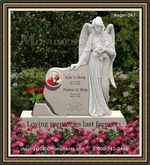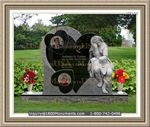|
Discovering ABC's Of A Traditional Jewish Funeral
A traditional Jewish funeral has certain elements to it. The main aim of these rituals is to honor the dead person, while being sensitive to his surviving family members. Generally, the specific customs carried out depends on the community the deceased person hailed from. But there are general customs that are observed at most burials.
The burial should take place within twenty four hours after death. However, there are some instances that may prevent this from happening. If close family members of the deceased are based in far away location, the burial will have to be delayed until the relatives have arrived. However, the funeral should generally be carried out as soon as possible.
Open caskets are not allowed at memorial services. The casket chosen should be simple and totally biodegradable. This means that it should be made purely out of wood. Even nails are not allowed, as they are metallic and can't decompose.
The body is not embalmed unless it is mandatory by law. This is to allow for fast decomposition when buried. A sacred society can be called upon to cleanse the body of the deceased and prepare it for burial. They bath the deceased and dress him.
The burial ceremony does not take a long time. It can be completed in less than half an hour. Flowers are normally considered as frivolous adornments, so they are often avoided at burials. If you wish, you can choose to have a small floral tribute, as long as the officiant is not opposed to it. Mourners cannot talk to the attendees until the whole burial ceremony is over.
At the conclusion of a Jewish funeral, mourners pass through the middle of the parallel line formed by the attendees. The attendees recite consoling words to the mourners. To symbolically cleanse themselves, mourners can wash their hands when leaving the graveside.
|
|



























